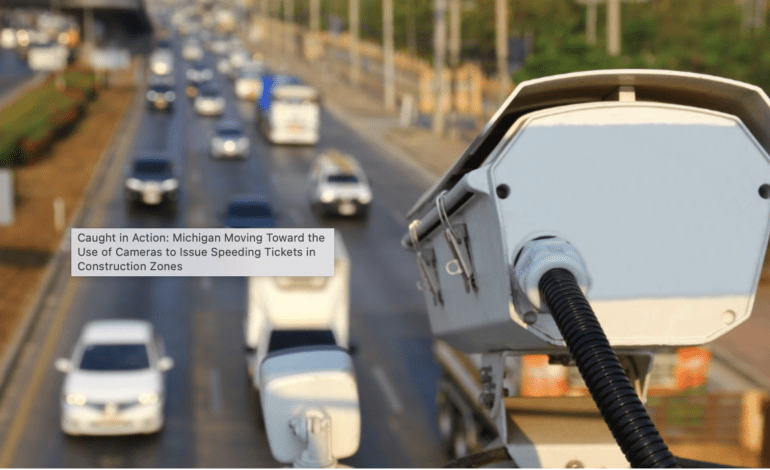Michigan had more than 4,300 traffic crashes within work zones in 2022, resulting in 16 deaths and 862 injuries, according to road work officials.
To make construction zones safer, legislators from the State House have passed a pair of bills that would allow for the placement of automated speed cameras in Michigan’s work zones. The proposals will move on to the Senate before they can reach Gov. Whitmer’s desk.
The system would include a speed timing device that could capture an image of license plates, include the date, location and time of the infraction, then mail offenders a ticket. The automated system could detect vehicles doing 10 mph over the speed limit a mile from the work zone.
Drivers caught driving 10 miles per hour or more over the posted speed limit could face mailed sanctions ranging from a written warning to a fine up to $300. Fines would double if the violation resulted in a crash.
The cameras would snap a photo of the vehicle’s license plate and include the location, date and time of the image. If the registered owner of the vehicle wasn’t the driver at the time of the traffic violation, they could submit an affidavit by mail or testify under oath in court under the proposed law.
If written into law, the bills would allow automated speed enforcement systems to be placed into work zones on state highways or streets under the jurisdiction of the Michigan Department of Transportation.
House Bill 4132, sponsored by Rep. Will Snyder (D-Muskegon) and Rep. Mike Mueller (R-Linden,) passed Thursday, June 22, by a 67-42 vote. A related bill – 4133 – also passed.
“It’s not really a big brother thing. It’s a safety thing,” Mueller said earlier this spring.
Under the bills, speed enforcement systems could be stationed in work zones not separated from traffic by barriers. A sign would have to be placed one mile before the start of the work zone indicating the zone is monitored by an automated speed enforcement system.
The cameras would snap a photo of the vehicle’s license plate and include the location, date and time of the image. If the registered owner of the vehicle wasn’t the driver at the time of the traffic violation, they could submit an affidavit by mail or testify under oath in court under the proposed law.
Any recorded image or data can only be used for adjudicating the violation. It’s thus confidential and can’t be sold to any third party.
The bill includes exceptions for police, fire and emergency medical services.
Also included in the bill is the creation of a “work zone safety fund”, which the state’s transportation department can use only for the purpose of improving worker safety at work zones by either increasing police presence in those areas or funding traffic control devices within work zones.
The speeding camera program will cost $985,000 annually and require six full-time positions, according to the House Fiscal Agency’s analysis.






Leave a Reply